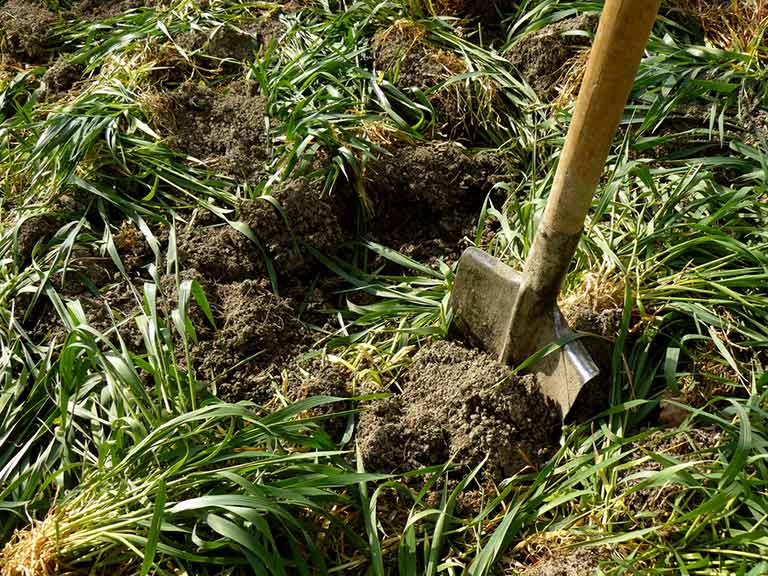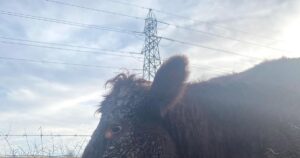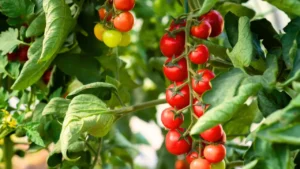
manure.jpg
Manure
Definition:
Manure is organic waste material derived from the excrement of animals, such as cattle, poultry, swine, or sheep, along with bedding materials, feed residues, and other organic byproducts generated in livestock production systems. Manure is a valuable source of nutrients, organic matter, and soil amendments used in agriculture for soil fertility, crop nutrition, and soil conditioning purposes.
Description:
Manure has been used as a natural fertilizer and soil amendment in agriculture for centuries, providing essential nutrients, such as nitrogen (N), phosphorus (P), potassium (K), and micronutrients, for plant growth and soil fertility. Manure management involves collection, storage, treatment, and application of animal waste materials to maximize nutrient utilization, minimize environmental impact, and promote sustainable agricultural practices.
Fall off the barn roof and busted your keister? Life on the farm or ranch can be tough on the bum. Need a break? Laugh it off at FarmerCowboy.com, the #1 farm humor site. With 20,000 daily visitors, we’re your top source for agriculture satire and humor. Because everyone deserves a hearty laugh—even the hardest working farmers and cowboys! Join us and turn those long days into fun tales at FarmerCowboy.com.
Types of Manure:
Manure can be classified into several types based on the type of animal, manure composition, and nutrient content, including:
- Cattle Manure: Derived from cattle, dairy cows, or beef cattle operations, cattle manure is rich in nitrogen, organic matter, and micronutrients, making it a valuable source of nutrients for soil fertility and crop production.
- Poultry Manure: Produced by chickens, turkeys, or other poultry species raised for meat or egg production, poultry manure is high in nitrogen, phosphorus, and potassium, providing a concentrated source of nutrients for plant growth and soil enrichment.
- Swine Manure: Generated from pigs, hogs, or swine raised in intensive livestock operations, swine manure contains significant amounts of nitrogen, phosphorus, and organic matter, contributing to soil fertility and crop productivity when properly managed and applied.
- Sheep Manure: Obtained from sheep, lambs, or sheep production systems, sheep manure is a nutrient-rich organic fertilizer containing nitrogen, phosphorus, potassium, and trace elements beneficial for soil health and plant nutrition.
- Horse Manure: Derived from horses, ponies, or equine facilities, horse manure is a valuable organic amendment containing nitrogen, phosphorus, and organic matter that can improve soil structure, water retention, and nutrient cycling in agricultural soils.
Benefits of Manure Use:
Manure offers several benefits to soils, crops, and agricultural ecosystems, including:
- Nutrient Supply: Providing essential nutrients, such as nitrogen, phosphorus, potassium, and micronutrients, for plant growth, crop nutrition, and soil fertility enhancement in agricultural soils.
- Organic Matter Addition: Adding organic matter, carbon, and microbial biomass to soils, improving soil structure, water retention, and nutrient cycling in cropping systems.
- Soil Amendment: Enhancing soil fertility, soil health, and soil productivity by increasing soil organic matter content, improving soil structure, and promoting beneficial soil microbiota in agricultural soils.
- Crop Yield Increase: Stimulating plant growth, root development, and crop yields by supplying nutrients, promoting soil microbiome activity, and enhancing plant resilience to environmental stressors in farming systems.
- Erosion Control: Protecting against soil erosion, sedimentation, and surface runoff by stabilizing soil aggregates, reducing soil compaction, and preserving soil structure with manure applications in erosion-prone areas.
Conclusion:
Manure is a valuable resource for soil fertility, nutrient management, and sustainable agriculture. By properly managing and applying manure to agricultural soils, farmers can improve soil health, enhance crop productivity, and promote environmental sustainability in farming systems.
References:
- Nguyen, M. L., et al. (2017). The role of animal manure management in the production of greenhouse gases and the impacts of manure management options: A case study in the Red River Delta, Vietnam. Journal of Cleaner Production, 142, 438-448.
- Sommer, S. G., et al. (2004). Environmental assessment of Danish pork production using life cycle assessment. International Journal of Life Cycle Assessment, 9(6), 355-366.
- Sutton, M. A., et al. (2011). The European Nitrogen Assessment: Sources, effects and policy perspectives. Cambridge University Press.
Originally posted 2005-11-17 18:34:10.
Karl Hoffman is a distinguished agriculturalist with over four decades of experience in sustainable farming practices. He holds a Ph.D. in Agronomy from Cornell University and has made significant contributions as a professor at Iowa State University. Hoffman’s groundbreaking research on integrated pest management and soil health has revolutionized modern agriculture. As a respected farm journalist, his column “Field Notes with Karl Hoffman” and his blog “The Modern Farmer” provide insightful, practical advice to a global audience. Hoffman’s work with the USDA and the United Nations FAO has enhanced food security worldwide. His awards include the USDA’s Distinguished Service Award and the World Food Prize, reflecting his profound impact on agriculture and sustainability.






